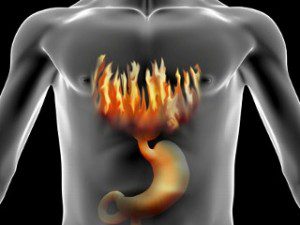Contributing Writer for Wake Up World
Why in the world would anyone take ANTIACIDS when dealing with LOW STOMACH ACID (hydrochloric acid)?
The answer can leave us all perplexed, as does the question. Because the drug companies and the conventional medicine brainwashed the population into believing that this is yet another “symptom” which needs to be covered up by drugs.
Encouraged by the legal drug industry, medical doctors are not taught that hypochlorhydria (inadequate stomach acid production) is treatable only with unpatentable natural replacement therapies. Instead, their education concentrates on hyperchlorhydria (excess stomach acid production) and its treatment with patentable “acid blocker” drugs and highly profitable over-the-counter antacids like Prilosec, Zantac and Pepcid.
What Is Hydrochloric Acid’s (HCL) Function In The Body And Why It Is Essential For Health?
HCL has three primary functions:
[pro_ad_display_adzone id=”110028″]
1) sterilize what is eaten, and kill acid sensitive bacteria, viruses, yeast, mold and fungi, and parasites;
2) digest proteins (in conjunction with pepsin) so it can be assimilated more easily by the intestines;
3) trigger the pyloric sphincter to open and the esophageal sphincter to stay closed, allowing the predigested contents of the stomach to enter the small intestine for further processing and preventing reflux into the esophagus.
As you see, stomach acid serves many important functions, not only in digestion, but also in keeping the body free from disease. Many bacteria enter the body with food. Some of them are not friendly to human life. In a normal stomach, these bacteria are doused with acid and die. In a person with hypochlorhydria, these bacteria are escorted into the small intestine along with a generous food supply. It has been shown that people with hypochlorhydria have more than their share of infections. The ever present yeast organism makes its entrance via the mouth. Many people with the so-called “yeast syndrome” are unable to get rid of their yeast because the organism continues to reinfect the body through the mouth.
Another important function of hydrochloric acid is the stimulation of pancreatic enzyme and bile release into the small intestine. Without enough pancreatic enzymes and bile, the digestion and absorption of carbohydrates, proteins, fats, and vitamins A and E, is severely compromised, inadvertently causing under nutrition even with an excellent diet.
What Happens When You Have Low Stomach Acid?
After 30, 40 or more years of digesting or attempting to digest everything we put in our stomachs – not just food, which the stomach is designed to handle, but also refined sugar, caffeine, distilled alcohol, grease and oxidized oils, fluoride and chlorine from water, chemical flavorings and colorings, pesticides, herbicides – you get the idea, no? – why would anyone except an antacid salesman or the average gastroenterologist imagine that our stomachs would make more acid, more pepsin, and digest things more efficiently as we get older? Common sense says that after 30 or 40 years, the stomach slows down, just like the rest of us, and makes less acid, less pepsin, and digests things less efficiently. Dr Jonathan Wright
Inadequate hydrochloric acid (HCL) can cause an entire cascade of problems, and as a result, can undermine virtually every process of metabolism, from tissue regeneration to immune function, to neurotransmitter balance, and much more. Inadequate HCL contributes to the root cause of many (if not most) human health problems.
The following conditions have been linked to hypochlorhydria:
· Acne rosacea
· Adrenal insufficiency
· Allergies
· Anemia
· Arthritis
· Asthma
· Autoimmune Diseases
· Celiac Disease
· Chronic fatigue
· Chronic hepatitis
· Diabetes mellitus
· Dry skin
· Gallbladder disease
· GERD – misdiagnosed acid reflux, but really hypochlorhydria
· Hypoglycemia
· Infections increased – parasitic, yeast,bacterial
· Lupus erythematosis
· Nail weaknesses
· Osteoporosis
· Poor night vision
· Psoriasis
· Rheumatic arthritis
· Stomach cancer risk increased
· Thyroid disorders
· Vitiligo
How Do You Know If You Have Low Stomach Acid (Hypochlorhydria)? Symptoms And Testing.
Symptoms of hypochlorhydria are similar to those of hyperchlorhydria. Burping, belching, bloating, “heartburn,” gas, sour stomach, undigested food in stool, a voracious appetite (due to cellular “starvation”), food sitting in stomach too long, slow digestion, inability to eat a large meal due to feeling full quickly, constipation, and diarrhea can all be due to insufficient HCL production. Thus, many of those who have too little HCL production are treated with antiacids, as though they have too much!
In the late 1960s, the Heidelberg test was developed to test for low stomach acid. This device involves swallowing a capsule about the size of a vitamin pill that can measure the stomach acid content. The only problems with this test are that it is hard to find, expensive, and time consuming. But it provides absolutely accurate and inarguable results.
The “hydrochloric acid challenge” commonly used by many practitioners is completely misguided and simply cannot assess HCL production status. In this test the patient takes increasing amounts of Betaine Hydrochloride with successive meals. If burning occurs at a higher dose it is thought that it is due to low levels of HCL production in the stomach.
Dr. Jonathan Wright, MD has done a good deal of clinical work with HCL and has stated that a normal healthy stomach will produce the equivalent hydrochloric acid of approximately 32 HCL capsules during a meal. This means a patient with normal HCL production should be able to take 32 HCL capsules on an empty stomach without experiencing a burning sensation.
So what causes the burning sensation that usually occurs during the HCL challenge test? It is clearly not the quantity of HCL until one gets to about 32 capsules.
The burning sensation happens because the stomach lining becomes irritated by the acid. This means only one thing – the mucosal barrier that normally protects the stomach lining is insufficient and is allowing the HCL to begin digesting the protein of which the stomach lining consists.
So, the HCL challenge test is actually only testing the mucosal barrier integrity, which is of course very valuable information.
The most typical cause of a damaged mucosal barrier is a chronically elevated cortisol level, or an infection of the GI tract and stomach (often by Helicobacter pylori). A poor mucosal barrier is actually typically the result of poor HCL production.
Hair Tissue Mineral Analysis can be used to assess digestive capability and find out valuable information involving HCl production. However, an accurate interpretation can be obtained only from a properly trained practitioner, who is interpreting the results in an integrative, functional way, based on metabolic individuality.
Is Supplementing With Betaine HCL A Good Idea?
Supplementation is many times needed, but one must first improve mucosal barrier integrity before implementing HCL supplementation, or damage to the stomach can easily occur. The comprehensive Metabolic Typing Program along with the Functional Diagnostic Nutrition Program can efficiently ensure the elimination of “blocking factors” which damaged the mucosa in the first place, as well as proper supplementation and diet for repair.
By eating the right foods for your metabolic type AND by assuring efficient digestion and absorption of those nutrients, the stomach’s inherent ability to produce sufficient HCL can be restored (along with all other metabolic functions). Degenerative processes can be reversed into regenerative processes. Ingesting, digesting, absorbing, and utilizing foods right for your metabolic type will balance body chemistry, rebuild organs and glands, and maximize metabolic efficiency over time.
Article Resources:
- Vaughan, David, CN. Assessing and treating digestive function
- The Healthexcel System Of Metabolic Typing ®
- http://tahomaclinicblog.com/the-digestive-theory-of-aging
- http://www.metabolichealing.com/key-integrated-functions-of-your-body/gut/the-hcl-challenge-why-the-conventional-test-is-dead-wrong
- http://www.metabolichealing.com/key-integrated-functions-of-your-body/gut/your-digestive-fire-the-vital-role-of-stomach-acid
Recommended articles by Raluca Schachter:
- Vitamin D Supplementation: This is Why It Can Be Wrong
- Hypothyroidism or Hashimoto’s? What You Need to Know and Why It Matters
- Understanding Cannabis Oil
- 6 Steps to Solve Your Blood Sugar Problems Permanently
- Antibiotic Resistant Infections: The Dangers… and How You Can Avoid Them
- What Really Happens When You Take Antibiotics?
- Understanding Inflammation and How to Eliminate It Naturally
- Listen to Your Body. Correct Food Ratios. Reverse Disease.
- Cholesterol Myths Debunked
- Follow The Money In “Sick-Care”: What’s Behind The Drugs And Needles?
- What Happens In Your Body When You Suffer From Thyroid Disease?
About the author:
 Raluca Schachter is a dedicated Clinical Nutritionist / Natural Health Practitioner a.k.a “The Health Detective”. Raluca was able to naturally reverse chronic health conditions she was struggling with most of her life, and now uses her knowledge to help as many people as possible do the same. Her health programs and diet plans offer a very unique and comprehensive approach to health, where individual nutritional and biochemical requirements are firstly met using specific nutrients and foods that each metabolism thrives on. Raluca offers her services to international clientele and her practice is fully online based. You can connect with Raluca at www.metabolicenergy.net and https://www.facebook.com/raluca.schachter.metabolicenergy
Raluca Schachter is a dedicated Clinical Nutritionist / Natural Health Practitioner a.k.a “The Health Detective”. Raluca was able to naturally reverse chronic health conditions she was struggling with most of her life, and now uses her knowledge to help as many people as possible do the same. Her health programs and diet plans offer a very unique and comprehensive approach to health, where individual nutritional and biochemical requirements are firstly met using specific nutrients and foods that each metabolism thrives on. Raluca offers her services to international clientele and her practice is fully online based. You can connect with Raluca at www.metabolicenergy.net and https://www.facebook.com/raluca.schachter.metabolicenergy
[pro_ad_display_adzone id=”110027″]







